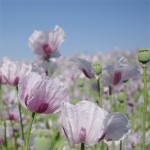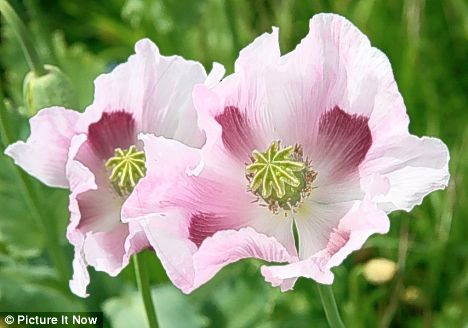|
Thanks to Tamara Cohen of the Daily Mail who wrote the following in an article in the paper with the pictures,
It is a crop more usually associated with the drug lords of Afghanistan.
But these lilac poppies are growing much closer to home.
Stretching out across acres of rolling Hampshire fields, they will be harvested later this year to produce pain-relieving drugs for the NHS.
Far from the Taliban: Similar to Afghan opium fields a vast crop of poppies grow on this Hampshire farm
Identical to the plant used to produce heroin, they are becoming an increasingly visible crop in the British countryside.
Covering more than 6,400 acres on around a dozen farms in Hampshire, Lincolnshire, Oxfordshire and Dorset, the flowers are harvested in the late summer.
The heads are dried and the seeds – up to 10,000 in a single flower – removed from the capsules for use in the food industry.
But it is in the seed pods that the important chemicals are found, and the pods are chopped, dried and turned into pellets in order to be transported.
The pellets are then sent to a processing plant in Scotland. This year’s crop will be made into more than 100 tons of morphine and codeine.
Extracting opium from the poppies and turning it into morphine – or heroin – is so complex and expensive that growers are confident the flowers will not be pilfered by enterprising drug dealers.
|
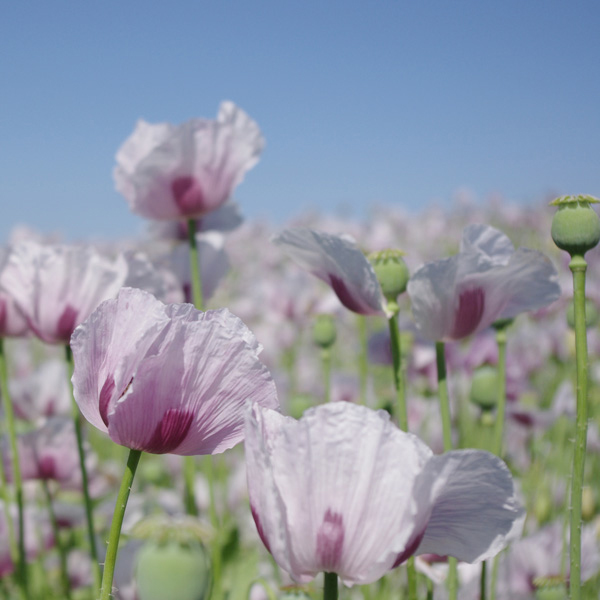 |
|
Pale beauty: A lilac poppy owned by MacFarlan Smith, the only company in the UK licensed to grow the crop
The opium poppy, Papaver somniferum, was first grown commercially on British farms in 2002 and is a different species to the common wild red poppy which contains no morphine at all.
The seed pod of the opium poppy contains a gummy substance. Opium is produced from this, and both codeine and morphine are derived from opium
Morphine is further processed by drug barons to make heroin
Afghanistan’s poppy fields produced 93 per cent of the world’s opium last year, much of it for the illegal drugs trade
The medicinal properties of opium have been known from ancient times, and it was used as a narcotic in European cultures as early as 4,000BC
|
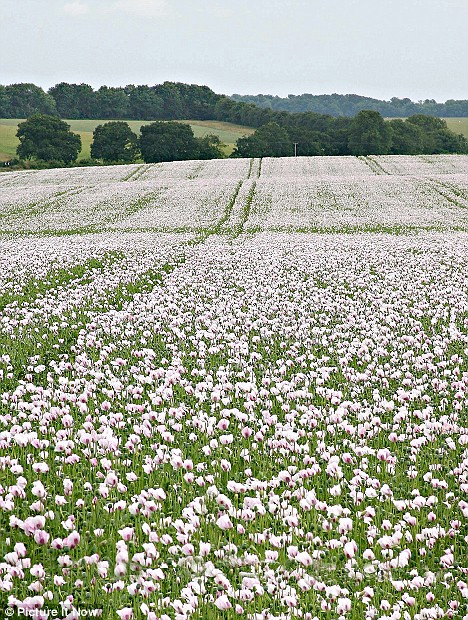 |
|
This farm in Hampshire has converted a quarter of its 1,000-acreage to produce poppies.
There is a worldwide shortage of morphine, which has traditionally been imported to the West from India and Tasmania, and this has plagued the NHS for several years.
Secrecy surrounds the locations where poppies are planted, and farmers are simply required to prepare their land and watch the poppies grow, while the drug company takes care of harvesting and transportation.
A spokesman for chemical company Johnson Matthey Macfarlan Smith, which manufactures the medicine, said: ‘It is very important that we are able to source and cultivate an important medicine in this country instead of relying on supplies from elsewhere.’
.
Below these poppies were captured by amateur photographer Andy Farrar, who woke up at 4.30am to catch the crop at its best.
Visitors come from miles around to catch a glimpse of the display in north Dorset.
|
|
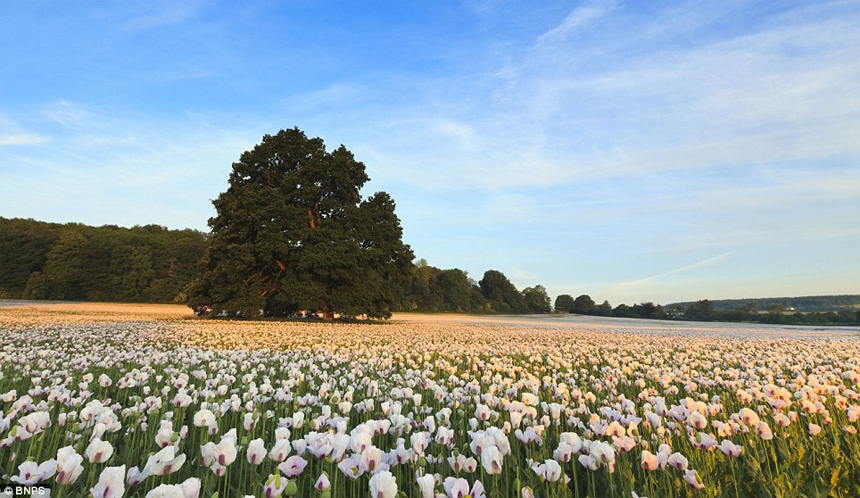
|
|
Johnson Matthey Macfarlan Smith say:-
In April 2006 Johnson Matthey Macfarlan Smith took ownership of the only UK poppy growing business. We can now manage our morphine supply from UK soil, thereby increasing our security of supply.
In the UK, poppies are a spring sown breakcrop and are an ideal entry to a first wheat. Macfarlan Smith manages the agronomy of the crop as well as the harvesting of the crop, using specialist equipment. All crops are authorised by the home office.
Our growers are selected for their professionalism, location, soil type and their facilities including an on floor drying system. A very high level of attention to detail is required at all times.
|
